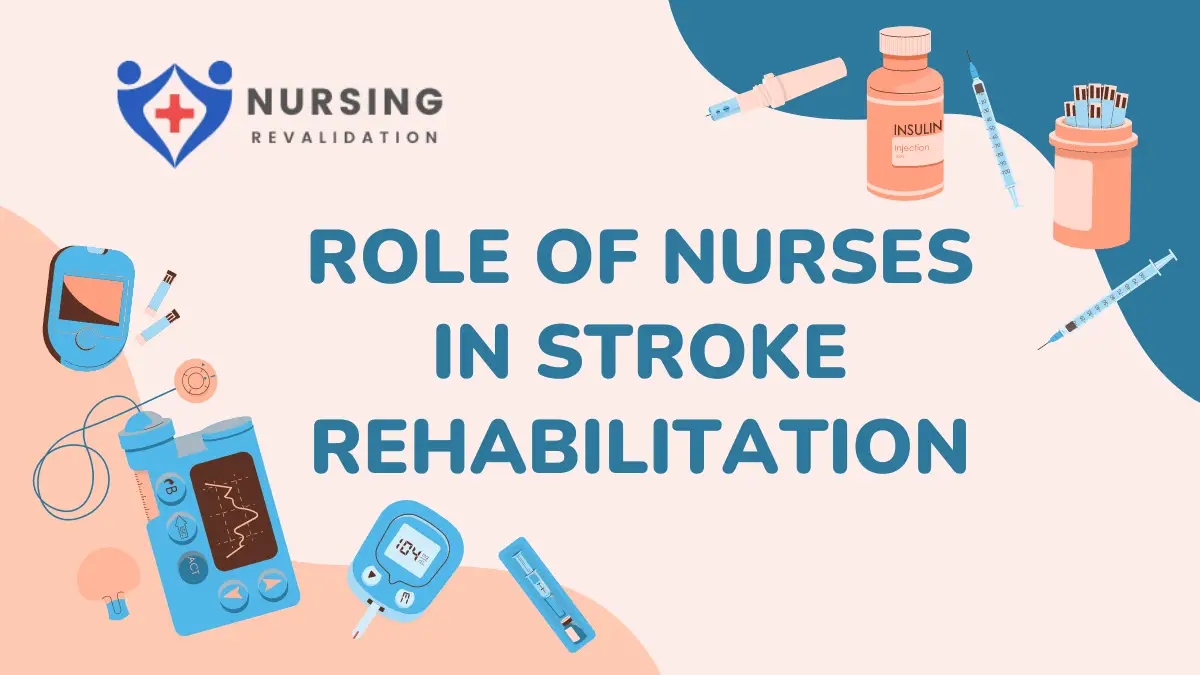Stroke is a devastating event that can lead to long-term disabilities, affecting millions of individuals worldwide each year. However, with advancements in medical science and rehabilitation techniques, the prognosis for stroke survivors has significantly improved. Among the unsung heroes in this journey towards recovery are nurses, whose role in stroke rehabilitation cannot be overstated. In this comprehensive guide, we’ll delve into the pivotal role nurses play in stroke rehabilitation, exploring their contributions, responsibilities, and impact on patient outcomes.
Understanding Stroke Rehabilitation
Before delving into the role of nurses in stroke rehabilitation, it’s essential to understand the process itself. Stroke rehabilitation is a multidisciplinary approach aimed at helping stroke survivors regain independence and improve their quality of life. It encompasses various therapies, including physical, occupational, and speech therapy, tailored to address the specific needs of each patient. Rehabilitation typically begins as soon as the patient’s medical condition stabilizes and continues throughout their recovery journey.
Table: Nurse Staffing Levels and Stroke Rehabilitation Outcomes
| Hospital | Nurse Staffing Levels | Average Length of Stay | Functional Outcomes |
|---|---|---|---|
| Hospital A | High | 10 days | Improved |
| Hospital B | Low | 14 days | Moderate |
| Hospital C | Medium | 12 days | Satisfactory |
The Role of Nurses in Stroke Rehabilitation
- Assessment and MonitoringNurses play a crucial role in the initial assessment and ongoing monitoring of stroke patients throughout the rehabilitation process. They are responsible for conducting comprehensive assessments, including neurological examinations, vital signs monitoring, and functional assessments. These assessments help in identifying the patient’s strengths, limitations, and goals for rehabilitation.
- Development of Care PlansBased on the assessments, nurses collaborate with other members of the healthcare team to develop individualized care plans for stroke patients. These care plans outline specific rehabilitation goals, interventions, and timelines, ensuring a coordinated approach to care delivery. Nurses act as advocates for their patients, ensuring their needs and preferences are considered in the care planning process.
- Implementation of Rehabilitation InterventionsNurses are actively involved in implementing various rehabilitation interventions as outlined in the care plan. This may include assisting patients with activities of daily living (ADLs), facilitating mobility exercises, administering medications, and providing emotional support. They work closely with physical therapists, occupational therapists, and speech-language pathologists to ensure continuity of care and optimal outcomes.
- Education and SupportIn addition to providing direct care, nurses play a vital role in educating both patients and their families about stroke, rehabilitation strategies, and self-care techniques. They offer guidance on medication management, fall prevention, dietary modifications, and community resources available for continued support post-discharge. By empowering patients and their caregivers with knowledge, nurses contribute to better long-term outcomes.
The Impact of Nurses on Stroke Rehabilitation Outcomes
The contributions of nurses to stroke rehabilitation are significant and far-reaching, with a profound impact on patient outcomes. Studies have consistently shown that hospitals with higher nurse staffing levels and better nurse-patient ratios have lower rates of adverse events, shorter lengths of stay, and improved functional outcomes for stroke patients. Nurses’ expertise in patient assessment, intervention implementation, and ongoing monitoring contributes to the overall effectiveness of rehabilitation programs.
Conclusion
In conclusion, nurses play a vital role in stroke rehabilitation, serving as advocates, caregivers, educators, and facilitators throughout the recovery journey. Their expertise, compassion, and dedication are instrumental in helping stroke survivors regain independence, improve quality of life, and achieve meaningful recovery milestones. As we continue to advance our understanding of stroke care and rehabilitation, it’s essential to recognize and appreciate the invaluable contributions of nurses in this critical aspect of healthcare.

